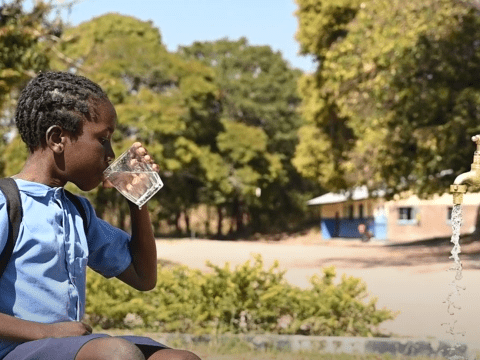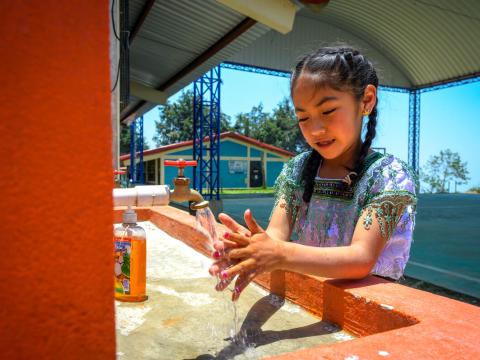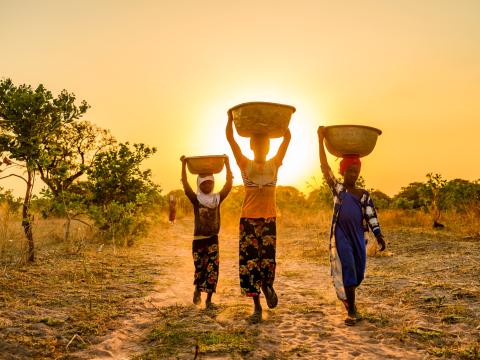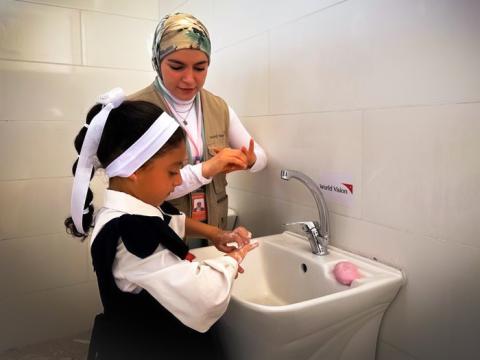
Investing in WASH is investing in education
Khalil A. Hamad, Technical WASH Focal Person with World Vision Iraq, says water, sanitation and hygiene (WASH) cannot be seen as a luxury in schools, but as the building blocks to a healthy and safe learning environment for children in Iraq.
Imagine trying to learn in school while thirsty or without access to a clean and safe toilet. For many children in schools across Iraq, this is a daily reality. The most basic necessities - clean water, safe toilets, and good hygiene - are still out of reach.
Together, the three elements of Water, Sanitation, and Hygiene (WASH) form the foundation of a healthy learning environment. WASH means that every child has access to safe drinking water, clean and private toilets, and the resources to wash their hands and manage personal hygiene with dignity.
When WASH is present in schools, children stay healthier, miss fewer days of class, and feel safer and more confident. When it is absent, disease spreads quickly, attendance drops, and learning suffers. For girls, especially during menstruation, the lack of clean and private facilities often means missing school. For children with disabilities, toilets that are hard to reach or unsafe can mean exclusion from education entirely.
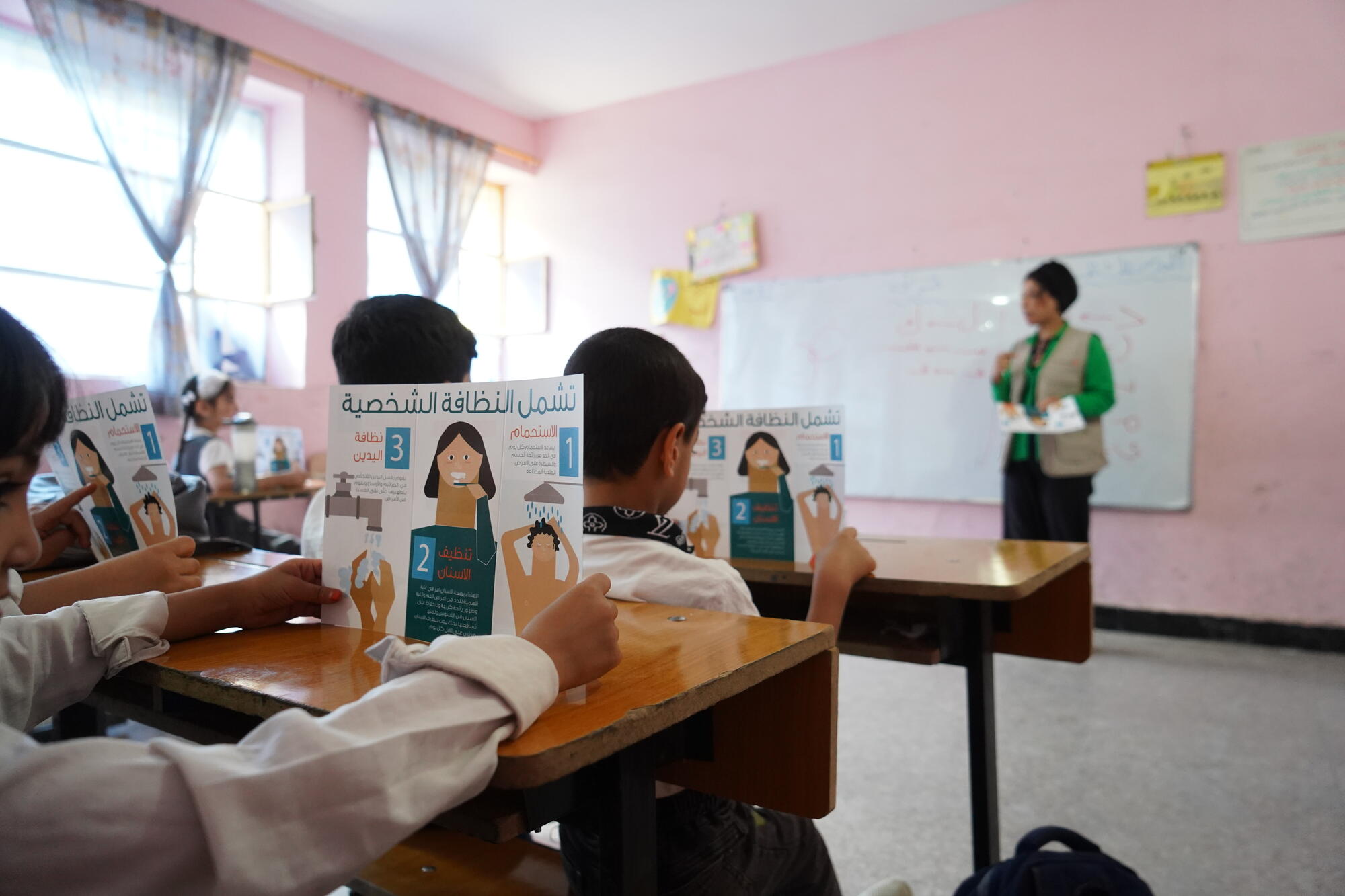
How WASH protects the right to learn
In Iraq, where decades of conflict and underinvestment have weakened basic services, school WASH is not just about comfort. It is about protecting health, dignity, and the right to learn.
According to UNICEF, nearly half of schools in Iraq lack access to safe drinking water, adequate sanitation, or proper hygiene facilities. This deprivation puts millions of children at daily risk of illness and discourages them from attending school regularly.
Recent research by World Vision Iraq in Tuz District, Salah Al-Din Governorate, revealed the difference WASH can make. Schools with rehabilitated facilities saw attendance improve by 10–20%, particularly among girls and children with disabilities. In contrast, 31% of students in schools without adequate toilets said they skipped classes because they felt unsafe or uncomfortable. Health outcomes were also stark: 39% of students in poorly equipped schools reported frequent illnesses like diarrhoea or urinary infections, compared to only 10% in schools with improved WASH.
The emotional toll was equally serious. More than four in ten students in under-resourced schools described toilets as “unsafe” or “embarrassing.” Fear and shame can be just as powerful as physical illness in keeping children away from school. Yet when toilets were clean, private, and accessible, students reported feeling respected, safe, and proud to attend.
For girls, menstrual hygiene remains a critical barrier. In some schools, 94% lacked facilities for menstrual hygiene management, meaning no private toilets, water, or disposal bins. Many girls stayed home during their period, missing valuable class time. Children with disabilities face similar challenges. 96% of them encounter barriers such as narrow doorways, missing ramps, or inaccessible toilets. These are not just technical problems; they are issues of equality, inclusion, and human rights.
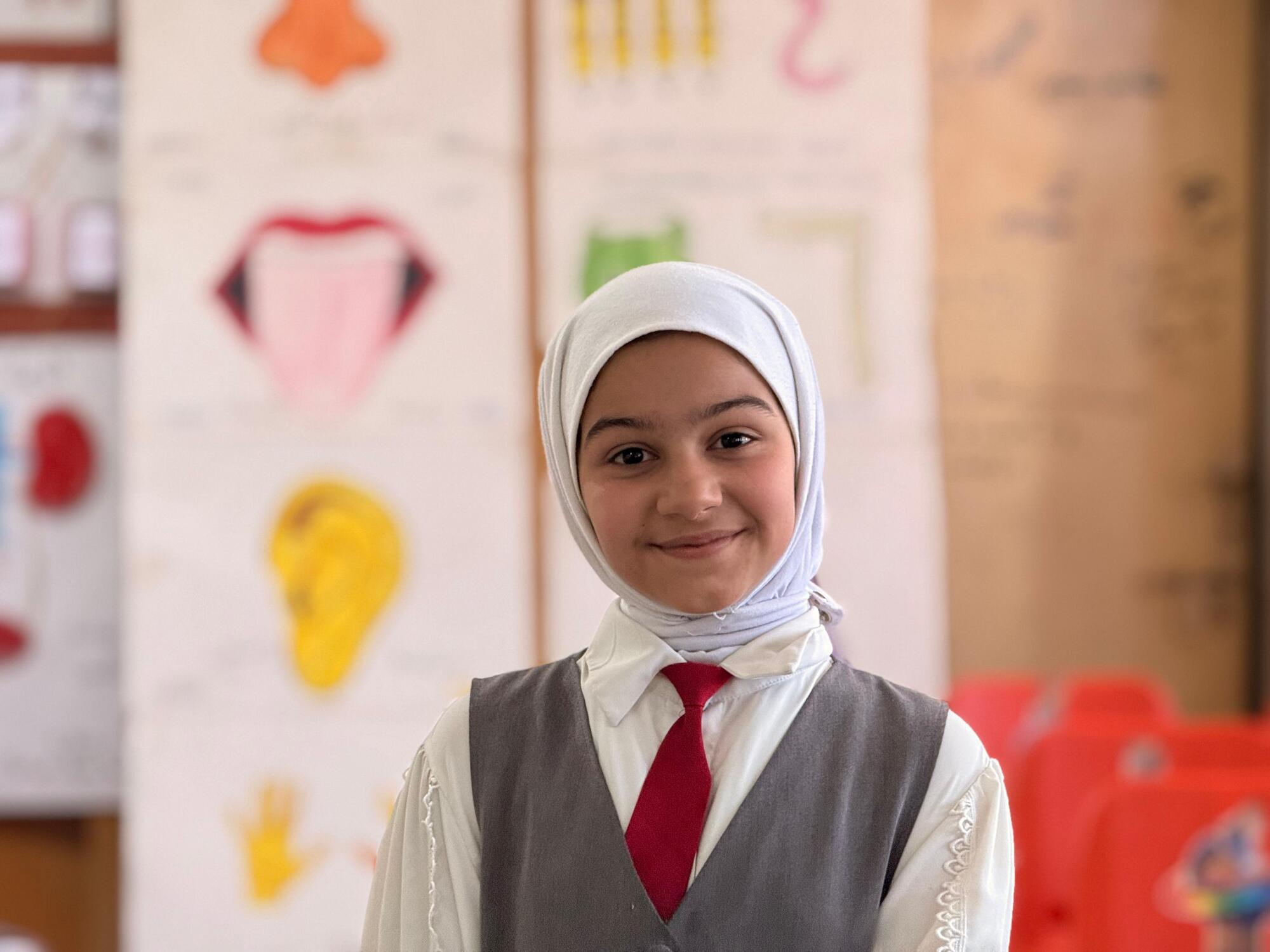
More than a luxury
WASH is not an extra or a luxury—it is a core part of education. Without it, schools cannot be safe, inclusive, or effective. Ministries of Education, local authorities, and development partners must work together to ensure every school in Iraq has sustainable WASH services. That means not only building toilets and water systems, but also promoting hygiene education, training teachers, and involving communities in maintenance and monitoring.
Experience from Salah Al-Din shows that when schools invest in inclusive, gender- and disability-friendly WASH facilities, the impact reaches far beyond the classroom. Attendance rises, children’s health improves, and confidence grows. Students learn respect for themselves and others—habits that carry into their families and communities.
THE MESSAGE FROM CHILDREN AND TEACHERS IS SIMPLE: A SCHOOL WITHOUT CLEAN WATER AND SAFE TOILETS IS NOT A SAFE SCHOOL.
As Iraq rebuilds its education system, investing in WASH is investing in the future. Every child deserves to learn in a clean, safe, and supportive environment—because no child should have to choose between their health and their education.
Khalil A. Hamad is currently the Operations Manager at World Vision Iraq, where he has served since 2016. With over eight years of experience in WASH, climate resilience and humanitarian programming, Khalil has developed extensive expertise in project design, implementation, and strategic management that strengthen community resilience in fragile and conflict-affected contexts. Khalil holds dual bachelor’s degrees in Civil Engineering and English Language, providing a strong foundation that bridges technical knowledge with effective communication and coordination. Throughout his tenure at World Vision Iraq, Khalil has held several roles, including WASH Consultant, Construction Engineer, WASH and Climate Resilience Technical Advisor, and now Operations Manager. In these capacities, he has demonstrated excellence in program oversight, proposal development, technical assessments, stakeholder engagement, and resource mobilisation. He has actively represented World Vision in WASH and Climate Resilience working groups and task forces, contributing to sector-wide collaboration and policy discussions.
